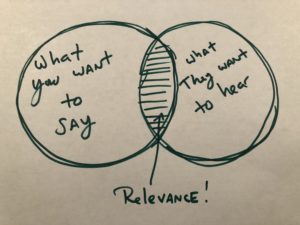I get frustrated when I’m asked to do something irrelevant. Don’t you? And yet, many teachers dread when students ask, “When am I ever going to need to know this stuff?” It’s a rather obnoxious way of asking, “Is this lesson relevant?”
Now, picture this. You craft a lesson that is so relevant that you hope some kid inquires! This episode is designed to help you create such a lesson. To help in this mission is an awesome primary source.
Mitchell Charles is an articulate young man destined for academic brilliance.
In World Civilization, we were meandering through a unit on the Industrial Revolution. This topic typically leaves some students cold. My challenge was to make it relevant. I did this with the help of Elon Musk and Peergrade. Below is the lesson that Mitchell evaluates in this episode. Please feel free to commandeer some of it, or all of it!
Applying the Industrial Revolution via Elon Musk
History students often complain that what they study doesn’t seem relevant. You may have heard the cliche, History repeats itself. You may, or may not be persuaded by this idea, but hopefully you’ll concede that the study of history at least gives us templates through which we can better understand the present. Technological changes that are at work today have the potential of reshaping the world along the lines of the changes brought about by the Industrial Revolution. Studying how that unfolded has the potential to make a young person more adaptable.
Elon Musk is one of the world’s most interesting and perhaps most impactful citizens. Musk is determined to improve the way you live. He also is determined to help the USA win back it’s manufacturing advantage. This man has the potential to create products and systems that are as impactful as anything we’ve studied so far. He was born under the yoke of Apartheid in South Africa and as soon as he was able, he migrated to Canada and then the USA. He’s now a US citizen.
I first became interested in Musk when I saw him appear on the Big Bang Theory many years ago. If you’d like to learn more about this compelling man, read this Rolling Stone article, or this fascinating book.
We’ll focus on 4 of Musk’s objectives:
- SpaceX
- Tesla
- SolarCity
- The Boring Company
Job 1: Become familiar with your topic by reviewing the links and conducting online research.
Job 2: Meet with other students who’ve been assigned the same focus. Dialogue about the company. You certainly don’t have to agree, but consider the views of your classmates.
Job 3: Individually, Respond to the prompts on the appropriate doc on Google Classroom.
Job 4: Upload your views to Peergrade.
Job 5: Evaluate your peer’s ideas via Peergrade.
Each student has been assigned a focus. Here are some links, but please don’t limit yourself to only the links I provide.
SpaceX
Start your research by visiting the company website. Then navigate to this objective article. Conduct research on this entity including a video search.
Tesla
Start your research by visiting the company website. Then, navigate to this objective article. Finally, conduct research on this entity including a video search.
SolarCity
Start your research by visiting the company website. Then, navigate to this objective article. Finally, conduct research on this entity including a video search.
The Boring Company
Start your research by visiting the company website. Then, navigate to this objective article. Finally, conduct research on this entity including a video search.
Elon Musk Reaction Prompt
Build your responses based on your research. Each prompt is worth 10 points. Elaborate on your ideas. Don’t just give 1 word, or 1 phrase answers. Compose a narrative for each prompt.
- Pretend that you are Elon Musk. You’re appealing to a number of venture capitalists with the goal of having them invest. Provide your audience with a sales pitch. This has nothing to do whether you…as in you personally, not as in you pretending to be Elon Musk…think the venture will be successful.
- Indicate whether you think this venture is feasible. Don’t just respond yes or no. Explain why, or why not, you think it’ll work.
- The inventions of the Industrial Revolution changed people’s lives in fundamental ways. Do you believe this venture will change lives and if you do, in what way and if you don’t, why not?
- Pretend that you’re in this class and it’s 200 years in the future. Your instructor, who is a remarkably improved version of yours truly, asks you to describe Elon Musk, place him in context, and describe his significance.
- Indicate something that you would like to see invented. This needs to be an innovation that will dramatically improve life on earth. Describe it, explain how it works, and predict how it will improve life.
Episode Template
The Problem:
Students often feel lessons are irrelevant.
The Solution:
Craft lessons where kids are challenged to apply what you’re teaching to their lives.
What you can do Tomorrow:
- Brainstorm real world applications for tomorrow’s lesson
- Break your students into 4 topics or problems and then challenge them to respond to provocative prompts
- Have kids submit their work to Peergrade and then watch a virtual Socratic Seminar unfold before your eyes
Teaching relevance is the responsibility of every educator. Teaching relevance will empower you to embrace the question, “Why do we have to learn this?”
Listen to “94-Usher in Relevance Courtesy of Elon Musk and Peergrade…Starring Mitchell Charles” on Spreaker







